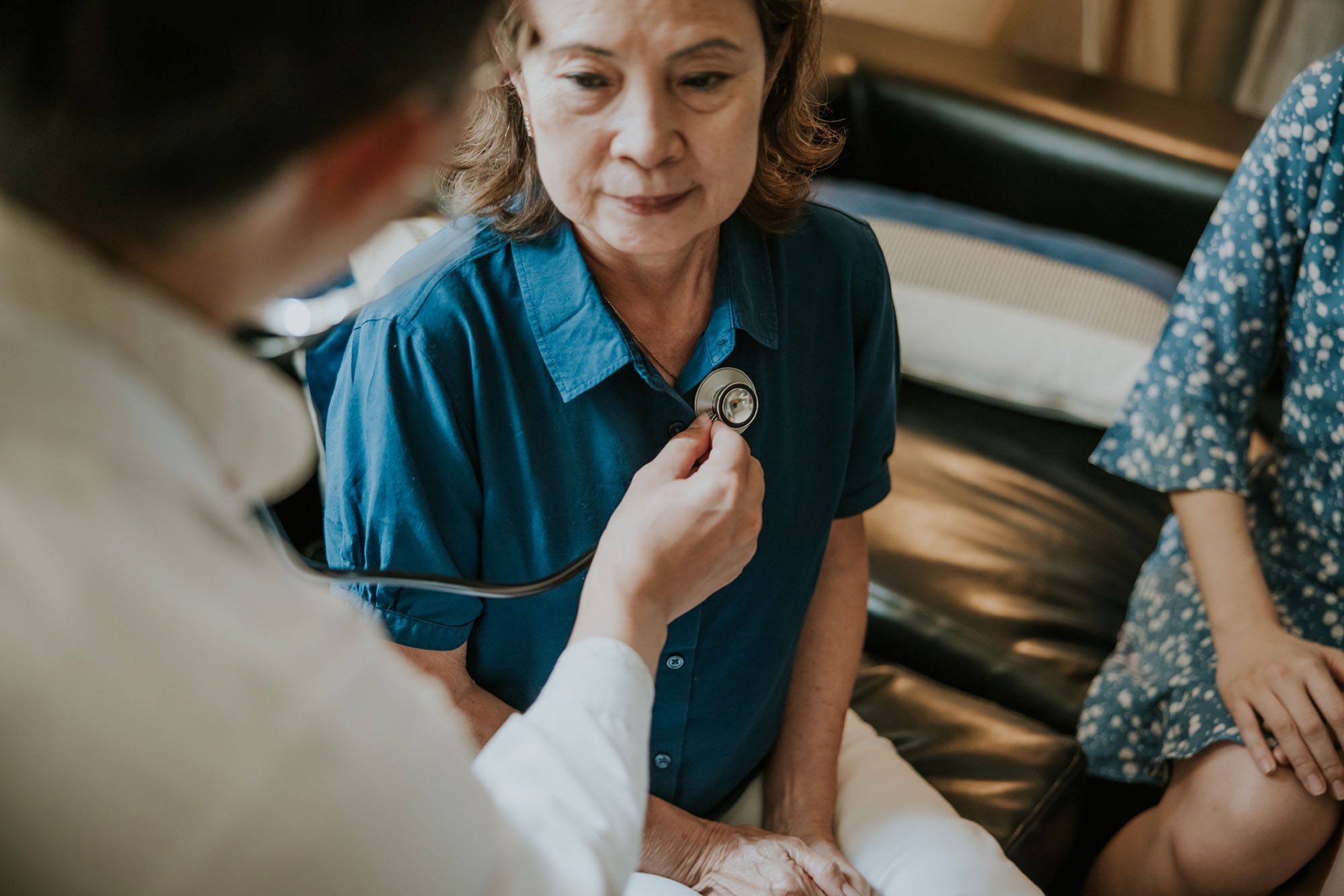Lung cancer is the second most common form of cancer. In 2023, over 230,000 people in the United States were diagnosed with lung cancer. However, early detection and cutting-edge treatments are helping many people live longer than ever before. If you or someone you love has lung cancer, the lung cancer specialists in pulmonary oncology at WMCHealth will treat you with compassion and the most advanced care available.
What Is Lung Cancer?
Lung cancer is a type of cancer that originates in the lungs.
Most people associate lung cancer with smoking. Although smoking is the No. 1 cause of lung cancer, it can also occur in non-smokers. Lung cancer can also be caused by exposure to secondhand smoke, asbestos, and radon. It may also occur in people with a family history of lung cancer.
Most cases of lung cancer occur in older people. The average age of lung cancer diagnosis is 70. Although it’s not likely, lung cancer can occur in younger people. Men have a one in 16 chance of developing lung cancer in their lifetime, while women have a one in 17 risk. This risk is much higher if you smoke.
Types of Lung Cancer
There are two types of lung cancer: small cell lung cancer (SCLC) and non-small cell lung cancer (NSCLC).
Non-Small Cell Lung Cancer
Most cases of lung cancer are NSCLC. There are three subtypes of NSCLC: adenocarcinoma, squamous cell carcinoma, and large cell (undifferentiated) carcinoma. These types of lung cancer typically have similar treatment plans and outlooks.
Small Cell Lung Cancer
SCLC is less common than NSCLC. If you’re diagnosed with SCLC, the cancer has typically spread beyond the lungs, which means you’ll likely need radiation and/or chemotherapy. SCLC is faster-growing than NSCLC and often comes back.
Diagnosing Lung Cancer
The first step in detecting lung cancer is often a chest X-ray. If there is still reason to suspect you might have lung cancer, your doctor will order a CT (computed tomography) scan. You might also have a PET scan or a bronchoscopy, which involves a camera going through your mouth or nose and into your lungs. During a bronchoscopy, your doctor will likely take a biopsy, or tissue sample, of your lungs.

Lung Cancer Screening Program at WMCHealth
Lung cancer is the leading cause of cancer-related death in the United States—yet when caught early, it’s often treatable. That’s why WMCHealth offers a comprehensive Lung Cancer Screening Program using low-dose computed tomography (LDCT). This painless, 20-minute scan uses a fraction of the radiation of a traditional CT to detect signs of lung cancer in its earliest stages, before symptoms appear. Early detection can significantly improve treatment outcomes and survival rates.
Our program is designed for individuals ages 50 to 80 who are current or former smokers with a history of at least 20 pack-years and no symptoms of lung cancer. A dedicated nurse practitioner will guide patients through the entire process—from eligibility and referrals to scheduling and follow-up. All screenings are interpreted by a multidisciplinary team of subspecialty-trained and board-certified radiologists, pulmonologists, thoracic surgeons, and oncologists.
Yearly lung cancer screening is recommended for people who meet all three of these criteria:
- A 20-pack-year smoking history (smoking a pack a day for 20 years)
- Smoke currently or quit within the past 15 years
- Between 50 and 80 years old
Lung cancer screenings through WMCHealth are available at the following locations:
- Bon Secours Community Hospital, Port Jervis
- Good Samaritan Hospital, Suffern
- MidHudson Regional Hospital, Poughkeepsie
- St. Anthony Community Hospital, Warwick
- Westchester Medical Center, Valhalla

Robotic-Assisted Bronchoscopies with Ion
At WMCHealth, we are committed to bringing patients the most advanced diagnostic tools available, helping our care teams detect and treat cancer and other lung diseases with greater precision.
Our interventional pulmonologists use the Ion Endoluminal System (Ion), a next-generation platform designed to reach the smallest and hardest-to-access nodules in the lung. Ion uses shape-sensing technology and robotic navigation to create a 3D roadmap of the lungs, allowing our specialists to safely and accurately guide instruments to targeted areas.
By integrating this technology into our comprehensive lung cancer program, WMCHealth provides patients with earlier diagnoses and a clearer path forward while reducing the stress and uncertainty that often comes with testing.
Treatment for Lung Cancer
Surgery
There are several types of surgery for lung cancer. If you have surgery, your doctor will remove the cancerous tissue in your lungs. They may even remove a portion of your lung or the entire lung.
Radiation
Radiation medicine uses high-energy rays to non-invasively kill cancer cells.
Chemotherapy
This treatment involves medications that kill the cancer cells in your body. Chemotherapy drugs can be taken orally (by mouth) or intravenously (through your veins).
Other Options
In addition to the above treatment options, you may receive targeted drug therapy, in which medications are used to kill cancer cells. Or, you may receive immunotherapy, which supports your own immune system in fighting the cancer.

